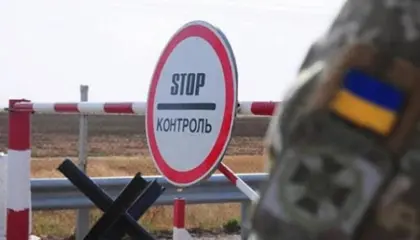Against the backdrop of news from the fronts, especially from Bakhmut and Vuhledar, we may not notice reports about the possible cancellation of fundraising concerts in Europe by some Ukrainian performers, including the popular band Kazka and the jazz-punk band Hypnotunez. However, we may be about to see a sharp reduction in the number of events like this involving male representatives of Ukrainian culture as it becomes more difficult for them to leave Ukraine.
All Ukrainian men between the ages of 18 and 61 are liable for military service, and men planning to take part in cultural projects abroad must obtain permission to leave Ukraine from the Ministry of Culture. A permit to leave carries with it the obligation to return within the period specified in the document.
Since the start of Russia’s all-out aggression, the business of getting permission to leave has added new layers of stress to the organization of foreign tours. The application should be made well in advance and permits are often issued only one day before the planned trip. Nonetheless, a good many Ukrainian cultural events have taken place in Europe and the United States during the last year.
Now, however, two incidents of “betrayal” have made the process much more complicated. These incidents involved the stand-up comedian, Andrey Shchegel and the film director, Taras Golubkov.

Trump Makes 90 Day Foreign Aid Freeze – Ukraine Military Support Supposedly Untouched
It emerged that Shchegel had been granted permission to leave Ukraine even though he had already received three summonses to the military registration office. Shchegel has ended up in Turkey, where he plans to wait for the end of the war before returning home. “I have based my actions on the fact that it is the choice of the guys to die,” Shchegel said in an interview with Ukrainian journalist Roman Skrypin. “I sincerely sympathize with everyone who is now forced to defend Ukraine out of love for it. I sincerely sympathize with Ukraine, which is experiencing the worst tragedy in its history.”
Shchegel went into hiding in Turkey instead of performing in stand-up comedy shows at venues outside Ukraine, as was indicated in his permit to leave the country. In contrast, in November 2022, Taras Golubkov got permission to travel abroad to shoot a film about the war in Ukraine, but he went to Moscow. There, he worked on a music video with the Russian singer Klava Koka, who openly supports the Russian aggression. No Ukrainian journalist has managed to interview Golubkov. He no longer responds to emails or phone calls and has closed his Facebook and Instagram accounts.
Two “betrayals” from the cultural sphere may not seem like a large number. However, show business is high-profile. Perhaps this is why the Ministry of Culture has felt obliged to introduce new rules for all military-age men wishing to obtain permission to travel abroad. They must now first receive a document from the military registration office confirming their status.
The issue of trust and confidence – not only with regard to cultural figures but men in general – is a double-edged sword. The increasing focus on keeping men in Ukraine may negatively affect the population’s confidence in the state and this may affect the strength of their loyalty to Ukraine.
Since 2014, Ukrainian cultural figures have been very active in supporting both the army and the civilian population affected by the Russian aggression. They have become volunteers in a broad array of projects including fundraising for the army and humanitarian needs.
Up to now, Ukrainian groups and individuals from the cultural sphere who are already well-known outside the country have had no problems obtaining permission to go abroad. The writer and rock singer Serhiy Zhadan, the band Okean Elzy and their lead singer Sviatoslav Vakarchuk, and the folk group DakhaBrakha are obvious examples. It is not clear how the men involved in these projects will react to the new travel permission rules, but concerns over the issue of trust are already being raised.
Commenting on the cases of Schchegel and Golubkov, Zhadan said: “The example of these two scoundrels should not undermine the efforts of thousands of representatives of Ukrainian culture who have been working for our victory for more than a year, who have invested so much in our common struggle… Let’s be frank! Without volunteer assistance to the armed forces of Ukraine, our army would be in great difficulty. And the activity of Ukrainian cultural figures means millions of dollars raised around the world. Essential things are bought with this money!”
You can also highlight the text and press Ctrl + Enter










